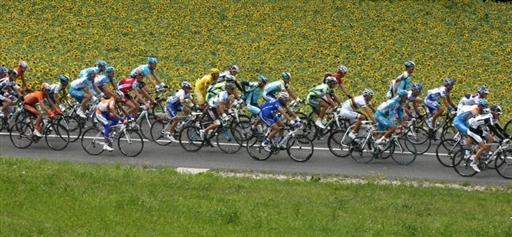UCI considers new partner for anti-doping testing on French soil
International Cycling Union disappointed in AFLD

After the release of a report by the AFLD (French Anti-Doping Agency) criticising procedures of the anti-doping testing carried out during the Tour de France, the International Cycling Union (UCI) said it will study options for future collaboration with a neutral partner for anti-doping controls performed on French soil.
The AFLD's report was simultaneously released to the media, the UCI, the World Anti-Doping Agency, the French ministers of health and of sport, and Tour organisers ASO on Monday morning. The UCI called the manner in which the AFLD's Pierre Bordry and his colleagues proceeded with regard to the report's release "completely unacceptable".
"While the UCI and AFLD together agreed a programme of testing for the 2009 Tour de France, the AFLD has drawn up and published a unilateral report, without giving the UCI the opportunity to study it and correct any erroneous comments that it may contain. This is certainly not what one would expect from a professional, reliable partnership working together in the battle against doping," read a statement from the UCI.
Earlier on Monday, the UCI's head of anti-doping services, Anne Gripper, insisted any problems over testing procedures had been dealt with during the Tour. "The UCI is confident that there was no preferential treatment given to any team during the Tour," she had told Cyclingnews.
Later on Monday, the governing body issued an official statement calling the accusations made by the AFLD against officials sent to the Tour de France "completely unfounded and indeed very serious". The organization said it operates per the obligations of the World Anti-Doping Code and that it had already conducted an investigation on the treatment of the Astana team, which had been questioned in the AFLD's report. "This clearly showed that the Astana team had not been favoured in any way," said the UCI.
Though the UCI had committed to a close collaboration with AFLD after the latter requested to be the sole organization responsible for anti-doping at the 2009 Tour de France, cycling's international governing authority is having second thoughts about the relationship.
"This attitude (of the AFLD) is not appropriate and does not give credit to the enormous amount of work carried out by many people during the three weeks of the event under the scope of an intensive anti-doping programme that is the most complete and sophisticated implemented for any sporting event outside the Olympic Games," read the UCI statement.
The latest race content, interviews, features, reviews and expert buying guides, direct to your inbox!
"The UCI considers it very disappointing that the good operational partnership put in place for the 2009 Tour de France has been undermined by Mr Bordry's pursuit of media attention, which seems also to have had the objective of sabotaging the efforts of the UCI and its partners in recent years with regard to the fight against doping. This has led the UCI to wonder about Mr Bordry’s actual intentions," concluded the UCI statement.
Follow Cyclingnews on Twitter for the very latest coverage of events taking place in the cycling world - twitter.com/cyclingnewsfeed.
Sue George is an editor at Cyclingnews. She coordinates all of the site's mountain bike race coverage and assists with the road, 'cross and track coverage.